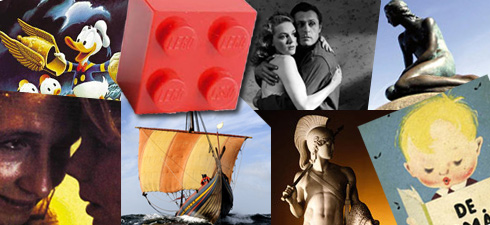In January 2006, the Danes deployed a new type of canon — a cultural canon established by the liberal-conservative government to affirm and publicise the country’s national cultural heritage. The canon listed 108 works of literature, cinema, theatre, architecture, design, fine art, and art for children selected by several commissions created by the culture minister of the time, Brian Mikkelsen, with entries for The Little Mermaid, Karen Blixen’s short stories, Lars von Trier’s The Idiots, Lego, Viking longships and even Donald Duck, who was first imagined by a Dane.
Following the launch of the canon in book form, Brian Mikkelsen announced that the initiative would help to combat the anti-democratic tendencies of some of the country’s immigrant Muslim communities. Five years later, the heated debate which accompanied the initiative has largely died down. However, Copenhagen daily Berlingske remarks that the canon will remain a milestone "not for the choice of works it included, but for the fact that a non-socialist government had dared to do something, which for decades had been considered beyond the pale: to simply state that some works are better than others, and to point out that this country may well be a modern society in a globalised world, but that does not mean we have no merit as a nation or no right to national pride, which should not be confused with chauvinism or romantic nationalism."
As a result, the daily argues, "the taboo on thinking in terms of a canon has now been dispelled" — an achievement that is more significant than the fact that "not much use has been made of the canon, and doubts remain about its impact.” It’s important to point out that “it was an affirmation rather than a restrictive dogma. And today it has come to symbolise a new era in which we would no longer be ashamed, and in which we reaffirmed our right to judge between what is good and not so good."
Denmark should follow the UK example
The bid to provide "the population of this country with a guide to national culture was not a nationalist gesture or an overly prescriptive government measure, but simple common sense," points out Kristeligt Dagblad. The Protestant daily adds that "the five years that have gone by since the launch of the canon have been marked by even more pressure from an entertainment industry that is churning out X-Factor style TV shows. And the canon has the merit of being a weapon to combat such trends."
However, the affirmation of "Danishness," which took place in a context that was marked by increasing tension on the issue of immigration and a government reliant on support from the far right, has remained a subject of controversy. Addressing himself directly to Brian Mikkelsen, who is now the country’s Minister for Economic and Business Affairs, Politiken columnist Rushy Rashid remarks: "The battle for culture and values that you attempted to win with your cultural canon has widened the rift [between Danes and non-Danes] and reinforced the notion of threats and enemies in our society."
"Why are we still debating our status as a multi-cultural society?” wonders the journalist. “Has the question not been settled by our actions?" For Rushy Rashid, Denmark should follow the example of the United Kingdom, Sweden and France — countries where people are proud of authors like Zadie Smith whose mother was Jamaican, Jonas Hassen Khemiri whose father was Tunisian, and the Iranian born graphic novelist and film maker Marjane Satrapi.
Was this article useful? If so we are delighted!
It is freely available because we believe that the right to free and independent information is essential for democracy. But this right is not guaranteed forever, and independence comes at a cost. We need your support in order to continue publishing independent, multilingual news for all Europeans.
Discover our subscription offers and their exclusive benefits and become a member of our community now!












